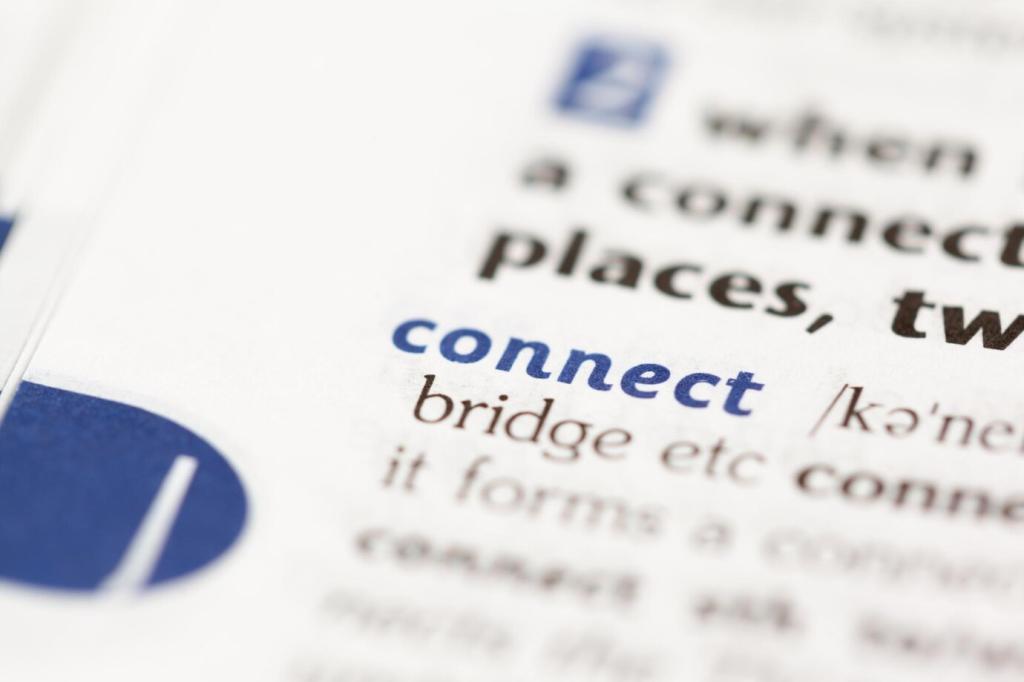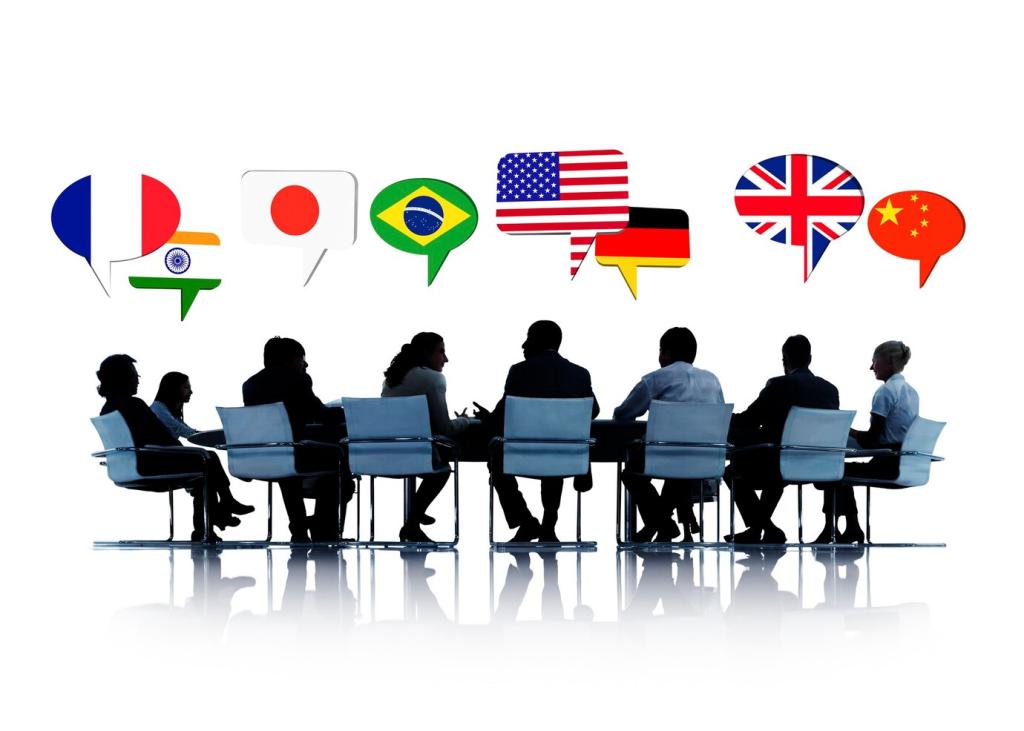
How Language Skills Can Enhance Professional Networking
Selected theme: How Language Skills Can Enhance Professional Networking. Explore how multilingual communication unlocks trust, access, and opportunity. Expect practical tactics, vivid stories, and tools you can apply today. Share your experience in the comments and subscribe for fresh, language-smart networking ideas.
Beyond Small Talk: Building Trust Across Cultures
Pronouncing a colleague’s name correctly, learning a polite greeting, and using culturally respectful phrasing instantly reduces distance. These small acts compound into trust, creating space for deeper conversations about real needs, shared goals, and collaboration possibilities that generic, one-language networking often misses.
Data You Can Use: What Studies Suggest
Research on bilinguals points to stronger cognitive flexibility, empathy, and social reach. In networking, that translates into reading context faster and sustaining diverse relationships longer. While results vary, the trend is clear: multilingual professionals often navigate complex stakeholder groups more smoothly. Follow for curated studies and summaries.
Personal Story: The Coffee That Became a Contract
At a Berlin trade fair, I thanked a Brazilian founder in Portuguese and asked about her hometown. A quick smile turned into coffee, then a demo, then a pilot project. The partnership began not with a pitch deck, but with two sentences that proved I cared enough to meet her halfway.

Practical Language Strategies for Real Events
Research attendee lists, identify three priority languages, and practice ten industry terms per language. Add a phonetic name guide, respectful greetings, and one culturally aware question. This light, focused rehearsal ensures your opening moments feel intentional, not improvised, when opportunity walks right past you in the hallway.


Practical Language Strategies for Real Events
Pair local gratitude with industry relevance: thank them in their language, reference a regional achievement, and ask an open, specific question about current priorities. Avoid clichés and overfamiliar slang. These crisp, respectful hooks invite depth without pressure, making follow-ups feel natural rather than transactional or rehearsed.


Digital Networking: Multilingual Presence Online
Combine a crisp English value proposition with a concise second-language line that mirrors your promise. This boosts discoverability, signals inclusivity, and gently invites cross-border interest. Keep formatting clean, avoid translation bloat, and front-load keywords that your ideal collaborators actually search for regularly.
Digital Networking: Multilingual Presence Online
Alternate languages, or write short bilingual captions for key announcements. Use plain language, accessible formatting, and culturally relevant examples. Add alt text and considerate hashtags so your content reaches communities that might otherwise miss it. Invite questions in both languages to spark richer, more connected discussions.
Cultural Intelligence: The Silent Partner of Language

Reading the Room, Globally
High-context cultures value subtlety and relationship-building; low-context cultures prefer directness and speed. Observe turn-taking, eye contact, and personal space before mirroring. Ask permission to switch languages in group settings to avoid excluding anyone. These signals make collaboration smoother and prevent avoidable misunderstandings.

Names, Honorifics, and Titles—Get Them Right
In many settings, titles carry respect and history. Learn when to use Dr., Prof., or honorifics, and how family names are ordered. If unsure, ask politely. You demonstrate humility and precision—qualities that elevate technical conversations, sales dialogues, and leadership introductions across borders.

The Gift of Listening
Reflect key points in their language—briefly paraphrase to confirm understanding before you propose solutions. Listening for values behind words reveals what truly matters: timelines, quality, relationships, or risk. Your replies become sharper, kinder, and more persuasive because people feel heard, not handled.
Tools, Apps, and Micro-Habits that Compound
Five-Minute Daily Stack
Review ten flashcards of industry terms, voice-record a thirty-second intro, and read one paragraph from a relevant article. Small, repeatable actions build fluency, confidence, and recall when pressure spikes at events. Track streaks to reinforce consistency and celebrate tiny wins that add up over months.

Overcoming Anxiety and Impostor Syndrome
Focus on meaning, not flawless grammar. A warm smile, a steady pace, and honest intent outperform polished but distant speech. Mistakes are data for improvement, not verdicts. Reframe nerves as energy for listening better and asking one clarifying question that moves the relationship forward.
Overcoming Anxiety and Impostor Syndrome
Noura, a product lead from Cairo, delivered a French-accented English talk. She named her accent, then shared a powerful case study. Attendees leaned in, asked questions, and offered intros. Her clarity and empathy outshone any imperfection—proof that expertise resonates when courage sets the tone.


